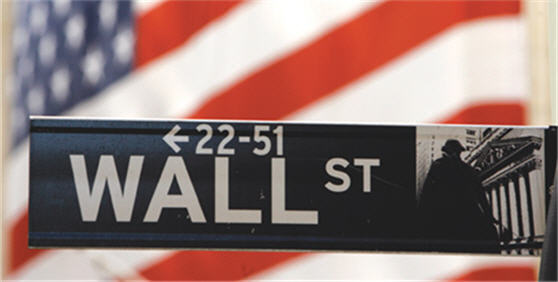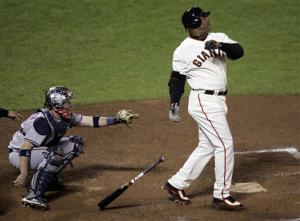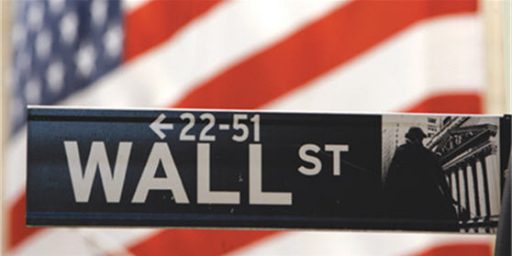World’s Largest Bond Fund Dumps All Government Debt
When the professionals stop buying government bonds, it’s time to start paying attention:
NEW YORK (CNNMoney) — Pimco’s Total Return Fund (PTTRX), the world’s biggest bond fund, slashed its exposure to U.S. government debt to zero last month.
It’s the second month in a row that well-known fund manager Bill Gross has drastically reduced Pimco’s exposure to U.S. government debt.
Gross has been very vocal about his feelings toward U.S. interest rates, saying in January that they were “robbing” investors and that U.S. government debt should be “exorcized” from investors’ portfolios.
The Total Return Fund held about 22% of its holdings in U.S. government debt as recently as December, but reduced those holdings to about 12% in January.
(…)
In his February newsletter, Gross said he believes U.S. Treasuries are trading at a yield of 1.5 percentage points below where they should be historically, making them an unattractive place to invest for the time being. Gross also reiterated that stocks and bonds may struggle this summer when the Federal Reserve ends its second quantitative easing program.
“Yields may have to go higher, maybe even much higher to attract buying interest,” Gross wrote.
That’s been an underlying fear in the bond markets, and Washington, for some time now, and Fed Chairman Ben Bernanke has attempted to calm the markets by refusing to rule out the possibility of a third round of Quantitative Easing, although in this case it seems clear that the purpose behind such a move would be to prop up the bond market and prevent interest rates from rising.
It’s worth noting, though, that at the same time PIMCO is selling its government bonds, the Chinese are buying:
The markets are agog at PIMCO’s Bill Gross selling all his Treasuries and going 23% into cash.
What they should be looking at is the recent surprise revelation that China’s readjusted US Treasury holdings; they have jumped from 32% of China;’s monetary reserves to 42% of its reserves- an increase in holdings of $260 billion. A major portion of this $262 billion was purchased for China in the UK, apparently by the Bank of England, in order to hide China’s hand.
This is a major development- totally under-reported in the financial press except by the Financial Times, where I got my start in the 1960s while a Goldman Sachs risk arbitrageur.
The bond market recognized the significance of China’s BUYING Treasuries instead of selling them. Hello!. Treasuries rallied the last 2 trading sessions as the yield on the 10 year declined from 3.53% to 3.43%, my top gfuru on bonds, Robert Smith of Smith Capital, reported to me today.
Smitty points out that China- the Peoples Bank of China- most likely will replace the US Federal Reserve as the BUYER of last resort of new treasuries once QE2 is over on June 30. So, the doomsday story that China will sink the dollar and the US economy by dumping its US government securities is just so much hogwash.
So, if this prediction is true, then the Bond Market won’t collapse, but we’ll become even more dependent on China. Why don’t I find that very resassuring?
Keep on eye on the bond markets come summer, things are going to be very interesting.







@Doug,
Remember that there’s a big difference between “yields are too low for the amount of risk I’m taking on”, which is what deficit hawks are worried about, and “yields are too low for what I can get elsewhere in the markets”, which is what this guy is saying.
Or, in other words, there’s so much demand for US gov’t debt that investors can’t bargain for a good rate of return. The exact opposite of the bond vigilante scenario.
Also,
“At the same time that he reduced his exposure to U.S. government debt, Gross vastly increased his cash and cash-equivalent position last month. Cash now makes up 23% of the portfolio compared to the 5% of the portfolio the fund had in January.”
Not exactly someone terrified of inflation, which is what the “we’re broke” crowd is constantly looking for.
This is correct:
“Remember that there’s a big difference between “yields are too low for the amount of risk I’m taking on”, which is what deficit hawks are worried about, and “yields are too low for what I can get elsewhere in the markets”, which is what this guy is saying.”
This isn’t:
“Not exactly someone terrified of inflation, which is what the “we’re broke” crowd is constantly looking for.”
Gross has reduced the duration of the portfolio, exactly what an inflation concerned portfolio manager would do.
There are also some plain old trading considerations: Just because China is buying doesn’t add up to “hogwash.” First, its just the other side of the trade. Same as it ever was. Second, its not clear that China’s motivations are the same as a straight financial investor. Third, the economic indicators aren’t nearly as good as the MSM would like to portray. A drop in yields in just two sessions says nothing more than that.
In addition, Gross may simply be concerned that a propping up QE II may not be renewed, tanking the treasuries, and then if QE III becomes evident………buy.
These conflicting issues are what the financial markets are wrestling with right now, and why we have actively traded markets.
I assume that Gross isn’t getting much more from his cash accounts that the rest of us. If that’s true, this seems a duck into safe harbor before a storm.
Isn’t this kind of the point of quantiative easing? To convince investors to invest elsewhere than bonds?
From the wikipedia page on QE:
“Risks include the policy being more effective than intended or of not being effective enough, if banks opt simply to sit on the additional cash in order to increase their capital reserves in a climate of increasing defaults in their present loan portfolio.”
Is that what is happening here?
Strictly speaking, if investors were fleeing from bonds then Gross would have a lot of redemptions on his hands, and would be reducing the size of his bond fund, rather than shifting it into cash.
he’s just selling them to bernanke…when bernanke stops buying & the price goes down from his bad mouthing them, he’ll be back in to buy them again…